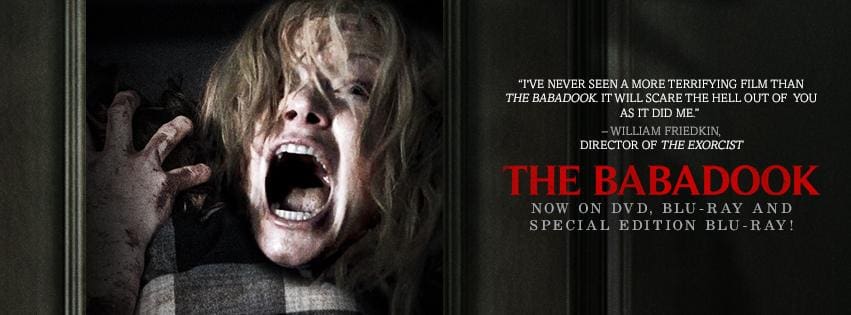The Babadook — Ann Hale
I hate to use this phrase, but I think The Babadook is one of the most misunderstood horror films of the past decade. In order to explain myself, I have to include major spoilers, so if you haven’t seen it, watch it and then come back to read this.
The Babadook is about a mother and son suffering from grief as a result of the death of the father. Both handle their grief in different ways, the mother suffering from depression, avoiding dealing with her loss, and the son acting out for his mother’s attention. As things seemingly get worse for them, a book called Mister Babadook shows up mysteriously. Once read, the Babadook begins to haunt them, trying to get inside of the mother to take her over.
Here is where I believe people misunderstand the movie: the Babadook is the grief they need to face in order to get better. If they let him inside, they will lose to the grief, but if they fight it and learn to control it, they can begin living a normal, happy life.
A lot of people focus on how annoying the child, Sam, is. It is unfair that people cannot look past it in order to understand why he is that way. The poor kid has grown up without a father and has an emotionally absent mother, so he acts out to get any attention from her. He loves her so much that he spends all of his time thinking of ways to protect her, which comes in handy when the Babadook does finally take control of his mother. In the end, it is his love for his mother that brings her back from the darkness. Once she is better, she must take the time to visit her grief in the basement, where her husbands things are kept in boxes and the Babadook now lives, to feed it just enough each day to keep it from overcoming her again.
The Babadook is an intensely creative, thought-provoking film that never got the appreciation that I feel it deserved, which is why it is on my list for the best of the decade.


